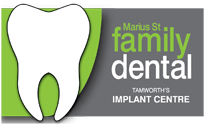Dental Extractions
Dental extraction is a removal of a tooth from the mouth. We also call it ‘removing a tooth’, ‘taking out a tooth’ or ‘having a tooth pulled’ (although, fun fact, teeth are never ‘pulled’ out – they are actually pushed out).
Why might you need an extraction?
Preparing for your appointment
What to expect during a routine extraction appointment
1. We will do an examination and get any further information, such as taking an xray and doing nerve tests. If there are options other than to remove it, we will discuss these with you.
Before we go further, we will also talk with you about your options after the procedure
– if you want to just leave the gap or if you want to replace the tooth, as this can affect how and when we take the tooth out.
2. We will ask you about your medical history. You must let us know about every medication or supplement you are taking even if you have purchased it from over the counter, so we can plan for complications or change our course of action. Even seemingly insignificant things such as St Johns Wart or ginko supplements can make a difference to how your body reacts.
Important!
Call us beforehand if you are on Warfarin or blood thinners, or require antibiotic prophylaxis (strong dose of antibiotics before dental treatment due to heart condition, transplant or increased risk of infective endocarditis)
3. We put it all together: we consider the urgency of extraction (if you’re in pain or if there is infection risk), the difficulty of the extraction, your medical history and your level of anxiety. We will let you know exactly what we will do.
Note: we do offer sedation if you require it, so let us know if you want us to discuss this option.
4. We place a numbing gel first, then get that tooth really numbed up.
5. Placing lots of pressure on that tooth! Contrary to belief, no pulling is ever done. It is important that you know that feeling lots of pressure is completely normal. However, you should never feel any sharpness or pain.
6. Once the tooth is out, we get you to bite on some gauze to create pressure and help form the blood clot.
Extraction after care
1. You will be numb for 3-4 hours afterwards, make sure you don’t bite your lip, tongue or cheek when you cant feel it or youll end up with a nasty ulcer. Avoid hot foods and drinks as well.
2. For the first 24 hours after the extraction, the blood clot that forms where the roots used to be is very soft – like a soft jelly. Its critical that for this 24 hours we take care of it so its not lost (trust us, bare exposed bone is not ideal). This means no strenuous activity (nothing that gets your heart going), no cleaning of that spot, no swishing or rinsing, and definitely no poking!
3. We will give you some spare gauze, if it is still oozing later that day, bite down for another 20 minutes. Give us a call if there is a significant amount of bleeding or persistant bleeding.
4. Do not take aspirin for the pain. Paracetamol and ibuprofen (unless contraindicated) are best. Generally these are only required for the first three days.
5. Ice pack can help with swelling in the first 24 hours
6. After 24 hours, you want to keep that area as clean as possible by mixing salt and water and using the salty rinse after meals and before bed. Keep doing this until the gum fully covers the hole.
7. Give us a call if the pain worsens after 3 days or if it gets better and then suddenly feels worse again (after 3 days).
